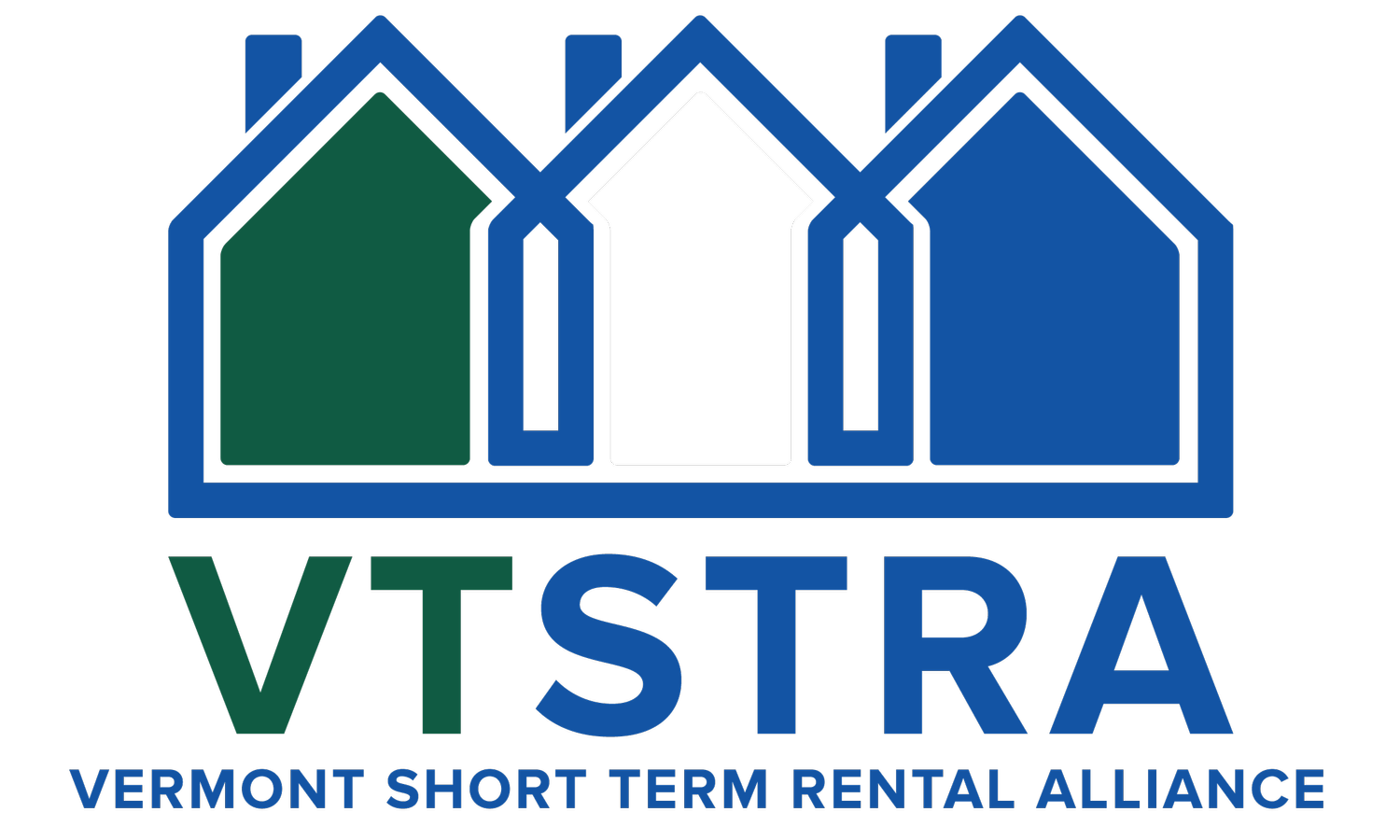
Common Myths about STRs
MYTH: STRs are owned or managed by Airbnb, Vrbo, and other booking platforms.
REALITY: Airbnb, Vrbo, and other platforms solely connect guests to hosts. They do not own or manage any of the properties subject to local regulations. Rather, the majority of Vermont STRs are owned and managed by members of our community, and many are using direct-booking options to further reduce costs placed on their customers.
MYTH: STR owners are all out-of-town investors or corporate developers.
REALITY: The majority of STR owners are individuals who live or regularly reside at their vacation home in Vermont. Over 80% of Vermont STR owners operate just 1 or 2 rentals. These folks generally rent short-term to help pay their VT property taxes, save for their kids’ college education, supplement their retirement income, or cover other living expenses.
MYTH: STRs aren’t taxed, giving them an unfair advantage over hotels.
REALITY: STRs in Vermont are subject to the same 9% Meals and Rooms Tax, and 1% Local Option Tax, where required, as hotels and inns. Airbnb and Vrbo/HomeAway have been collecting and remitting the Vermont taxes automatically on all reservations booked on the platforms since before 2018. See Airbnb’s Rules here.
MYTH: STRs compete with the local tourism economy.
REALITY: STRs make it possible for more people to visit and spend money in Vermont, especially in rural communities with no hotels and limited inns. 1 in 3 tourists say they are unlikely to consider a destination if STRs are not an accommodation option. STRs provide an economic option for guests who need more space but cannot afford multiple hotel rooms and those who need access to amenities like kitchens to be able to cook their own meals. Additionally, STRs keep tourism dollars in our communities and disperse them to local businesses. Roughly 50% of STR owners are Vermont residents.
MYTH: STRs aren’t subject to safety requirements.
REALITY: STRs are subject to VT building codes and the safety requirements, such as fire extinguishers, smoke detectors, carbon monoxide detectors, GFCI outlets, and more. Guests are made aware of any missing recommended safety features. Many non-owner occupied STRs (second homes) have commercial STR insurance, which requires rental properties to meet additional safety requirements. Learn more about Vermont’s STR safety here.
MYTH: STRs cause affordable housing problems.
REALITY: In Vermont, whole-home STRs make up about 2.5% of all housing units, and ~90% of them are used by their owners for some of the year. In fact, renting to short-term guests helps make owning property in VT affordable by supplementing mortgages, and property taxes. With the recent surge in new residents, STRs provide those moving to Vermont with housing while they transition. The VFHA says affordable housing problems are caused by Vermont's zoning restrictions, permitting processes, cost of construction, and public opposition to development projects.
MYTH: STRs reduce local jobs.
REALITY: The management of a vacation rental—whether full-time or part-time—creates jobs. STRs rely on the services of local housekeepers, landscapers, maintenance technicians, pest control providers, property managers, and other property care specialists. Case studies have shown that for every one new STR, four fractional jobs are created in the local area.
MYTH: STR guests are a nuisance to neighbors.
REALITY: STR guests have been found to be quieter than long-term occupants 4 out of 7 days a week. There is no evidence that STR guests cause more noise, trash, or parking violations than long-term renters. VTSTRA supports STR owners who commit to industry standards of professionalism and respect.


